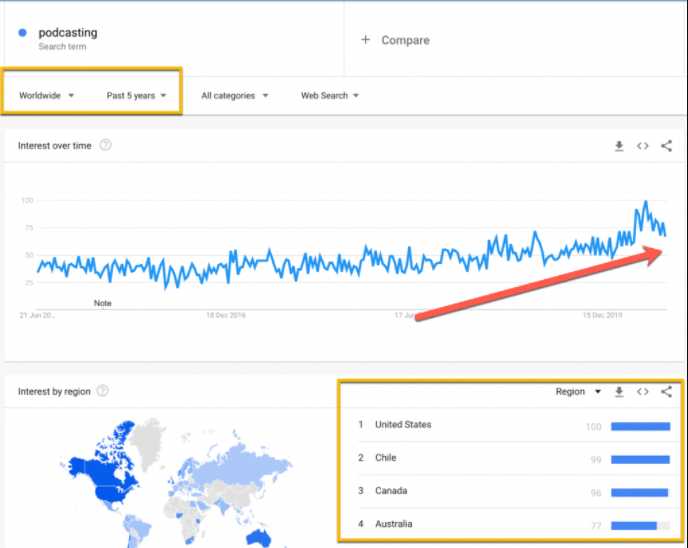1. Your area of interest, sometimes referred to as your passion
Choose a specialization based on your previous experience, hobbies and education, current interests, readings and education, and life accomplishments. For instance, if you've lost weight, you might consider beginning a health blog; if you've achieved financial independence, you might consider creating a finance blog.
Always keep in mind that teaching improves learning!
I accomplish this by compiling a list of topics about which I am enthusiastic and then filtering it using the additional filters provided below.
You want to be sure that the specialty you choose is not just something you're enthusiastic about, but also profitable in the long term.
2. A Niche With Little Competition Equals An Easy Win:
One more thing to keep in mind is how many people are in the same field. Avoid highly competitive niches, as they are already saturated with websites created by other webmasters.
Niche selection success hinges on remembering this principle. Your objective should be to choose a niche that is not very competitive and has a low user base. Simultaneously, it has the ability to increase over time (see trends in niche selection) to provide a more complete picture of this.
3. Your Area of Skills:
While passion is an excellent guide for identifying a fantastic niche, you should not overlook your existing expertise when it comes to niche selection. Particularly, because a large number of websites rely on Google search to generate traffic, knowledge is a factor to consider.
Google made it quite obvious a few years ago that they rank websites based on author skill. More organic traffic is a benefit of having a high ranking on search engines, and this in turn will help you succeed in your blogging endeavors.
When it comes to some fields like health, banking, and anything related to money, Google actually went one step further and began penalizing sites with unclear levels of knowledge.
While generic areas such as fashion and technology are doing well at the moment, we cannot be assured that this will continue in the near future. When selecting a specialty, it is important to evaluate your credentials, your official classification (for example, engineer, doctor, or management degree).
If you lack one of them, avoid entering a specialty where qualification is required. There is a fix for this scenario, although it is not quite as simple as it appears. Therefore, in addition to your interest, choose a specialty in which you may showcase your own knowledge or employ experienced authors. A workaround for this is to get your content reviewed by an expert (For example, health niche can work with a medical practitioner, to review the content).
4. Future Relevance Of The Subject
So you've established a few niches for yourself, but what about their future?
By monitoring the trend and ensuring that it has increased over time, you can assure that you will remain relevant in the future.
There are some exceptions, such as when you're working on a micro-niche and your blog's time horizon is less than 1-2 years. Google trends is an excellent free tool for determining a topic's popularity.
This is how to utilize Google trends.
- Navigate to Google Trends.
- Enter your specialized subject.
- Choose a destination country (Ex: Worldwide, India, United States, Australia)
- Choose a date range (Ex: 5 years)
And Google would show you how user interest in that topic has increased or diminished over time.

5. Does Your Niche Make Money?
You should think about this when you choose a niche for your blog. This is another important thing to think about. It's not uncommon for new bloggers to start a blog about a subject they're passionate about yet struggle to monetize it.
Due of the large number of highly trafficked categories, it is difficult to monetize. Due to a lack of interest from advertising, niches such as these aren't as profitable as they may be.
While Google AdSense or Media.net are undoubtedly the most prevalent methods of monetizing any niche, as I discussed in my how-to-make-money-blogging webinar, there are more revenue-generating methods.
There are several methods for determining the monetization potential of a website, one of which is through comparing similar websites in the field. This approach is sometimes referred to as competition analysis.
Analyze other blogs in a related area (wide or limited) and observe how they monetize their content.
A few points to keep in mind:
- In order to make money, are they simply using AdSense and other contextual ad networks like that?
- Are they running any direct marketing campaigns? If yes, which brands are you referring to?
- Is the website equipped with affiliate links?
- Are they selling any things (Courseware, eBooks, or Merchandise)?
- Are they consulting?
This type of research will give you a head start on your blog business plan and will also serve as an inspiration for your blog.
When it comes to niche selection, these are the final words:
I'd like you to know one thing before we get into questions about niche selection:
While this approach should serve as a starting point for your niche selection process, it should not be the sole consideration. There are frequently outliers that believe the unimaginable, and this should be kept in mind.
You may avoid making the same niche selection mistakes as others by following key concepts like collecting facts to confirm your niche selection proposal.
ALSO READ:
Analysis of Keyword Gaps – Strategy and Tools
How to Create a Blog for Free and Earn over $58,234 Monthly
This book is intended to assist you in learning the strategies that pros use when selecting a specialty. In the real world, you'd have to pay hundreds, if not thousands, of dollars to acquire all of this knowledge. Today, you are learning this for free; but, all of this knowledge is useless if you overlook any one of the niche selection process's principles.
If you already have a blog in a particular topic, this approach can help you refocus it. This manner, you will not only ensure your future success, but you will also avoid ending up like many bloggers who quit blogging due to a poor niche decision.
Q. As a non-expert in anything, how can I begin a blog in any niche?
A. Obviously, the most effective way to learn anything is through teaching. As long as you use these techniques to choose a suitable niche and begin writing about it, you will improve.
As you progress as a learner, you may return to change previous articles, which is entirely natural. In general, you do not need to be an expert in any topic to start a blog; you become an expert via learning and blogging. Indeed, learning to write improves your ability to explore and learn, as writing involves more preparation. Even though the first few months will be difficult for you, you will have a greater influence in the long term.




Alphonsus Odumu 3 w
Blogging principles